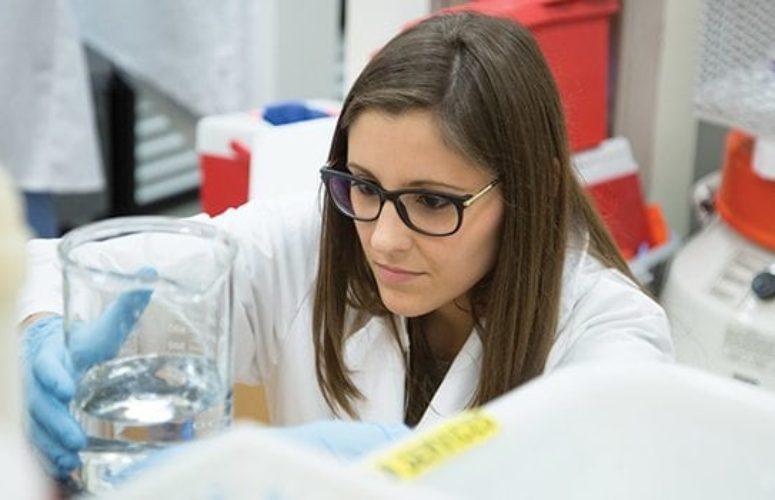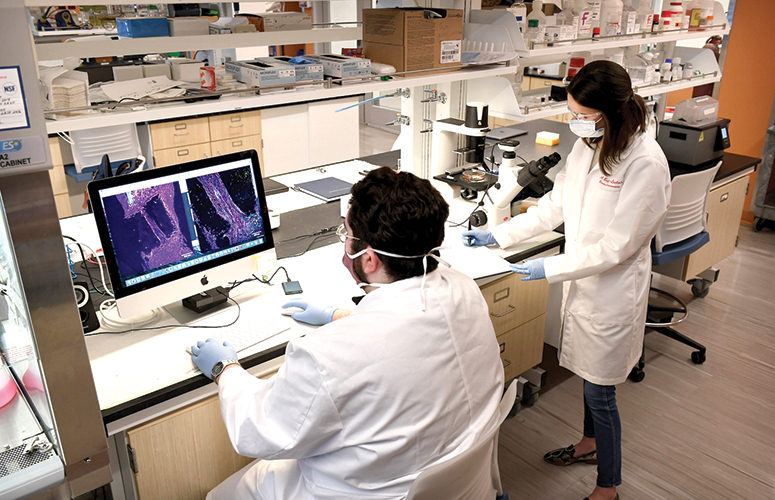
Collaborating on Cancer Care
By Steven K. Libutti, MD, FACS, Director of Rutgers Cancer Institute of New Jersey; SVP for oncology services at RWJBarnabas Health and vice chancellor of cancer programs at Rutgers Biomedical and Health Sciences On Nov 29, 2017As New Jersey’s only National Cancer Institute-designated Comprehensive Cancer Center, Rutgers Cancer Institute of New Jersey has a tremendous responsibility of delivering integrated cancer care across the state. Thanks to our recent partnership with RWJBarnabas Health, there is a collaborative emphasis on oncology research and cutting-edge treatment, enabling those who need cancer care to stay close to home, whether by visiting the New Brunswick or Newark campuses of Rutgers Cancer Institute or any of the 11 hospitals of RWJBarnabas Health.
Reaching into the community and identifying risk for various conditions including cancer is becoming more commonplace and results in the need for comprehensive healthcare networks that are more accessible to patients. Rutgers Cancer Institute is no stranger to a comprehensive care delivery model that spans multiple locations. Through the years, the institute has offered patients unique care and access to clinical trials through a network of hospitals across the state, and is continuing to do so through the recent partnership with RWJBarnabas Health, which has a service area covering five million people. This means, together, we can reach more patients with novel treatments and clinical trials to which they may not have had access to otherwise.
This approach also enables access to interdisciplinary care, pulling all practitioners together into teams, and allowing the patient to see everyone at once. We then rapidly navigate that patient to the part of our program that is best suited to result in the best possible outcome and is most convenient for the patient. This seamless connectivity enables patients to limit travel time. Opportunities exist to expand our reach even further into the community under the Rutgers Health umbrella, which encompasses the clinical entities of Rutgers University.
Creating novel partnerships with community practices can only heighten our delivery of cancer care. That aim for better care delivery starts right at our doorstep, as we continually strive to go above and beyond our service levels. Enhancements in supportive care and survivorship are forthcoming to Rutgers Cancer Institute, as well as expansion of our clinical offerings including the development of a neuroendocrine tumor center of excellence. In the past few months alone, we have grown and enhanced our team with physicians and nurse navigators, and have improved timelines of care.
Along with our exceptional care levels, we ensure our research touches everywhere we practice. This includes unique clinical trials exploring cutting-edge treatments. Our physician scientists are collaborating with investigators at other cancer centers across the nation and with industry partners to explore drugs known as “checkpoint” inhibitors. Certain proteins can prevent the body’s immune system from functioning properly. Checkpoint inhibitors target these proteins and allow the body’s natural defenses to get back to work in attacking the cancer. Significant advances have been made with this therapy in the treatment of melanoma and non-small cell lung cancer. At Rutgers Cancer Institute, we’re further exploring this treatment through clinical trials for advanced stage triple-negative breast cancer and other cancers.
Other important research includes collaboration between Rutgers Cancer Institute and the National Cancer Institute’s Center for Cancer Research. Thanks to $4 million in support – including $2 million from the Robert Wood Johnson Foundation – this research will accelerate the discovery of cancer therapies that address treatment for those cancers that result from mistakes made in DNA repair.
Along with joint research projects with pharmaceutical companies, national cooperative groups and other cancer centers, Rutgers Cancer Institute also works with the Big Ten Cancer Research Consortium – cancer centers associated with Big Ten universities – on developing unique clinical trials utilizing patient populations from across the consortium. Similar to that is membership in the Oncology Research Information Exchange Network® (ORIEN), in which cancer centers and healthcare systems are taking part in a unique non-treatment study. Through the creation and utilization of a centralized database of clinical and molecular data, investigators aim to identify better ways to treat cancer and, as with all of these collaborations, help our patients stay close to home.
Related Articles:






